Michael Sivak
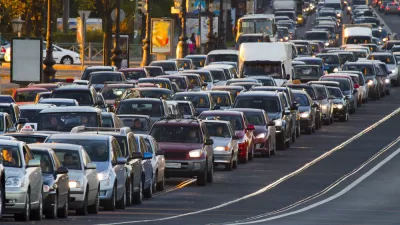
Peak Motorization: Measuring Rates of Auto Ownership and Distances Driven
Passenger vehicle ownership and vehicle miles traveled per person and per household remain below their historic peaks set in 2006 and 2004, respectively, but they have been on the upswing for the past four to five years, according to new data.
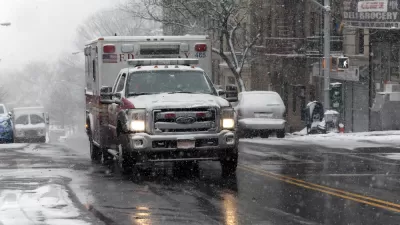
How the U.S. Compares to Other Nations in Road Safety
It's not just death from gun violence where the U.S. is an outlier. The New York Times compiled traffic fatality data showing that other developed nations have greatly lower traffic death rates, which wasn't historically the case.
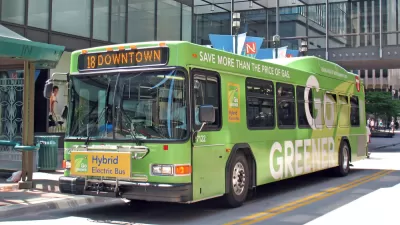
Fuel Efficiency Just Became Much More Important
Two widely cited University of Michigan transportation researchers urge consumers to drive more fuel efficient vehicles to reduce their own carbon emissions as President Trump works to relax vehicle fuel economy standards.

2016: Year of the Sports Utility Vehicle
Last year set two notable vehicle records. First, the most cars ever sold, at 17.54 million. Second, light trucks accounted for almost 61 percent of all sales. Sales of more fuel efficient car fell, though electric vehicle sales increased.
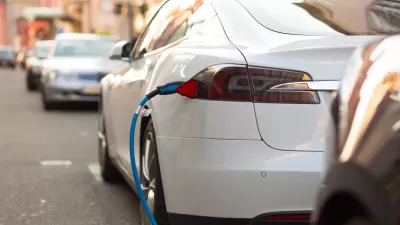
Hybrid and Electric Cars Take a Downturn in the Used Car Market
It's not just Americans favor SUVs and light truck over compact cars, but that a majority of EV and hybrid owners who have traded in their cars are opting for all-gas vehicles, and that spells trouble for meeting President Obama's climate goals.
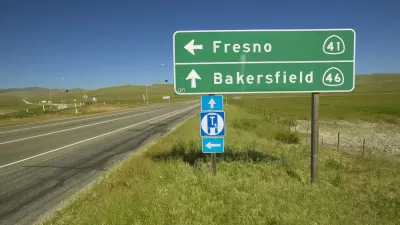
California Road Charge Pilot Launches July 1; Gas Tax Increase Still Needed
Two notable transportation developments occur in California on July 1. First, a pilot road charge program begins—5,000 motorists will be charged by the mile driven. Second, the gas tax drops by 2.2 cents. An analysis by ITEP looks at both.
U.S. Gasoline Consumption Up, Oil Production Down
Gas prices are on the rise, though they will remain well below 2014 levels through this year. U.S. oil production dropped by 600,000 barrels from last year, while gas consumption is on track to break the 2007 record thanks to cheap gas and more SUVs.
Demographic Changes Spell Trouble Ahead for Auto Industry
It's not only young adults who are delaying in getting drivers licenses, but a drop in licenses among all age groups according to a new analysis of license data from 1983-2014 by the University of Michigan Transportation Research Institute.
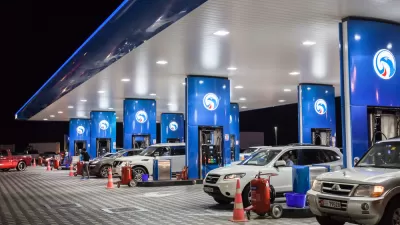
Vehicle Miles Traveled Hits Record; Fuel Efficiency Decreasing Too
New figures from the Federal Highway Administration show no abatement in increasing vehicle miles traveled (VMT). While low oil prices have been beneficial for the environment on the production end, it is wreaking havoc on the consumption side.
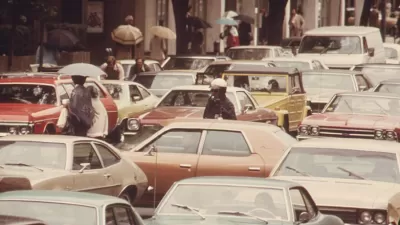
If Congestion Is Getting Worse, Why Are We Spending Less Time Traveling?
The University of Michigan Transportation Research Institute released its eighth report on peak motorization in the U.S., an evaluation of time spent traveling for a broad category of purposes, not just work. From 2004 to 2014, total time decreased.
Bay Area Leads the Nation in Reducing Solo Commuters
According to the Census Bureau's American Community Survey on commuting to work, one subregion in the Bay Area can claim accolades for having achieved the largest drop in solo-commuting from 2006, scoring the third lowest drive-alone rate in 2013.
Cheap Gas Defeats Fuel Efficiency Goals
The effect of low gas prices on motor vehicle selection by consumers could set back President Barack Obama's climate legacy, which includes obtaining fuel economy standards of 54.5 mpg by 2025.

The "College-Dense and Car-Light" Theory
Is there a relationship between carless households and density of college graduates? Derek Thompson of The Atlantic connected the dots using Michael Sivak's latest 'peak car' study and saw a relationship between the two variables.
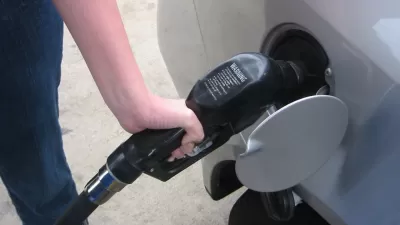
Whatever Happened to Declining Oil Consumption in the U.S.?
Last year, the U.S. increased oil consumption by two percent, surpassing the increase in China for the first time in more than a decade according to a new IEA report. How does this increase square with peak car, peak VMT, and peak oil consumption?
Do You Know What Year the U.S. Hit Peak Gasoline Consumption?
Michael Sivak of the Univ. of Michigan has published another key report documenting our waning love affair with the automobile. Sivak documents peak overall gasoline consumption occurring in 2004. Per capita fuel consumption may have peaked in 2003.
Welcome to the Age of "Driving Light"
As a nation, we are driving less, but we are increasingly stuck in traffic. What explains this paradox? Using Portland as an example, where driving peaked in 2004, Joseph Rose attempts to explain with lots of help from transportation experts.
Urban Design for Planners 1: Software Tools
This six-course series explores essential urban design concepts using open source software and equips planners with the tools they need to participate fully in the urban design process.
Planning for Universal Design
Learn the tools for implementing Universal Design in planning regulations.
Heyer Gruel & Associates PA
JM Goldson LLC
Custer County Colorado
City of Camden Redevelopment Agency
City of Astoria
Transportation Research & Education Center (TREC) at Portland State University
Jefferson Parish Government
Camden Redevelopment Agency
City of Claremont


































